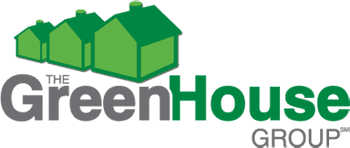Pros and Cons of HELOC
Pros and Cons of HELOC
Homeownership brings with it the potential to unlock financial opportunities. Two such avenues are home equity loans and home equity lines of credit, commonly referred to as HELs and HELOCs respectively. Each offers distinct advantages and drawbacks, making it crucial to understand the nuances before making a decision.
Home Equity Loans and HELOCs: An Overview
A home equity loan is essentially a lump sum loan secured against your home’s equity. This means you borrow a specific amount upfront and repay it over a fixed term with consistent monthly payments, much like a traditional loan. Interest rates on home equity loans are typically fixed, offering predictable budgeting.
In contrast, a HELOC functions more like a credit card. You’re approved for a specific credit limit based on your home’s equity, but you only borrow what you need, when you need it. Interest rates on HELOCs are usually variable, meaning they can fluctuate over time. There are two primary phases: the draw period when you can access funds, and the repayment period when you start paying back both principal and interest.
Pros and Cons of HELOCs
HELOCs offer a degree of flexibility that home equity loans cannot match. By accessing funds as needed, you can better manage cash flow. Furthermore, the initial costs associated with opening a HELOC are generally lower compared to a home equity loan. For homeowners seeking to tap into their equity for home improvements or unexpected expenses, a HELOC can be an attractive option.
However, the variable interest rate structure poses a risk. If interest rates rise, your monthly payments could increase significantly. Additionally, while HELOCs often have lower upfront costs, they might come with annual fees and other charges. Moreover, as with any loan secured by your home, there’s the inherent risk of foreclosure if you’re unable to meet your repayment obligations.
Overspending is another potential pitfall. The ease of access to funds can tempt borrowers to spend beyond their means. It’s essential to have a clear plan for how you’ll use the HELOC and to stick to a budget.
When to Consider a HELOC
HELOCs can be a valuable financial tool when used responsibly. They are suitable for homeowners who anticipate fluctuating financial needs, such as those planning home renovations or facing unexpected expenses. The ability to draw funds as required provides a level of financial security.
However, if you need a specific amount of money upfront and prefer predictable monthly payments, a home equity loan might be a better fit. Additionally, if you’re concerned about rising interest rates, a fixed-rate home equity loan can offer more stability.
Ultimately, the decision between a HELOC and a home equity loan depends on your individual financial circumstances and goals. Carefully evaluating your needs, risk tolerance, and repayment capacity is crucial to making the right choice.
